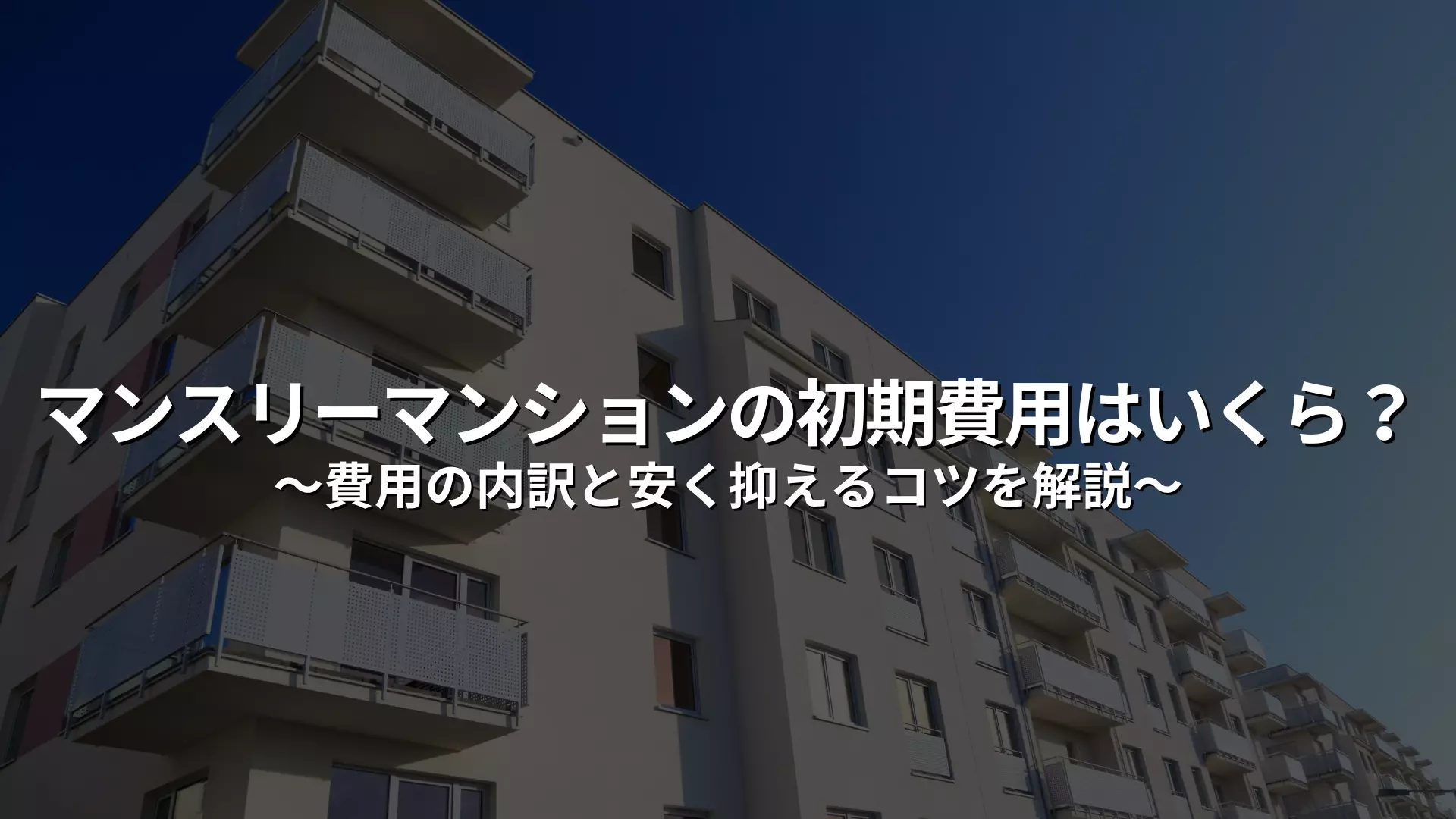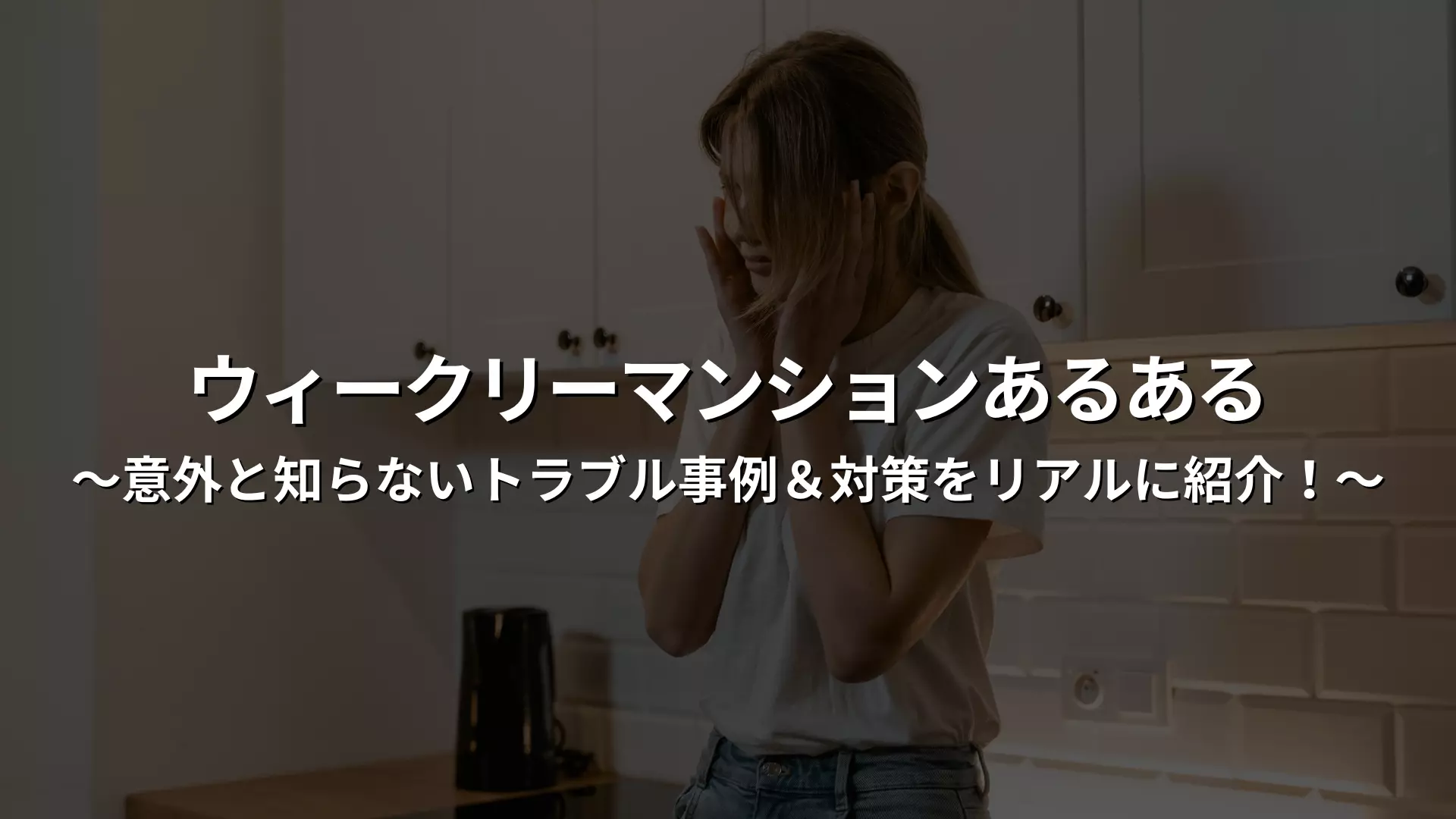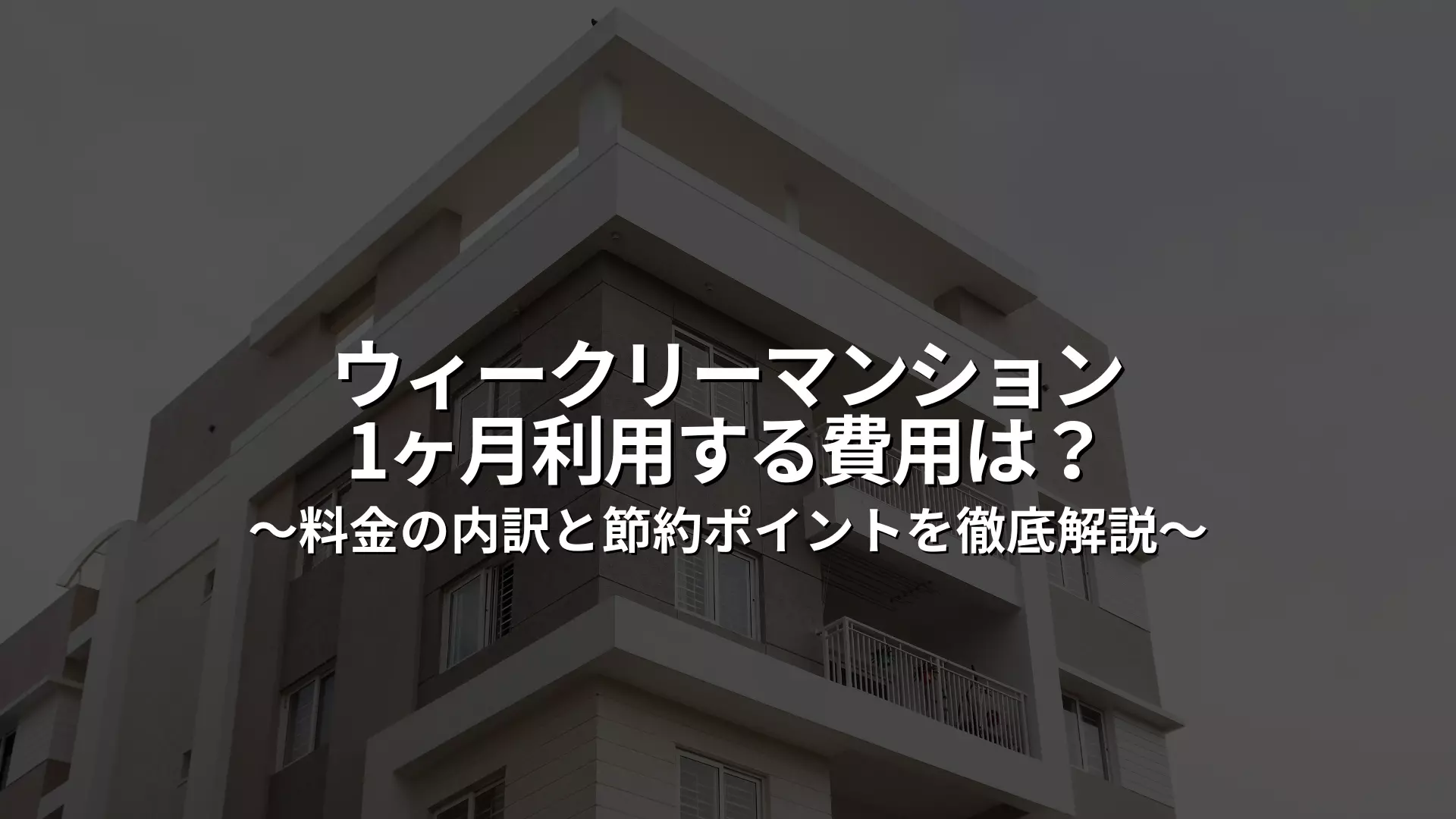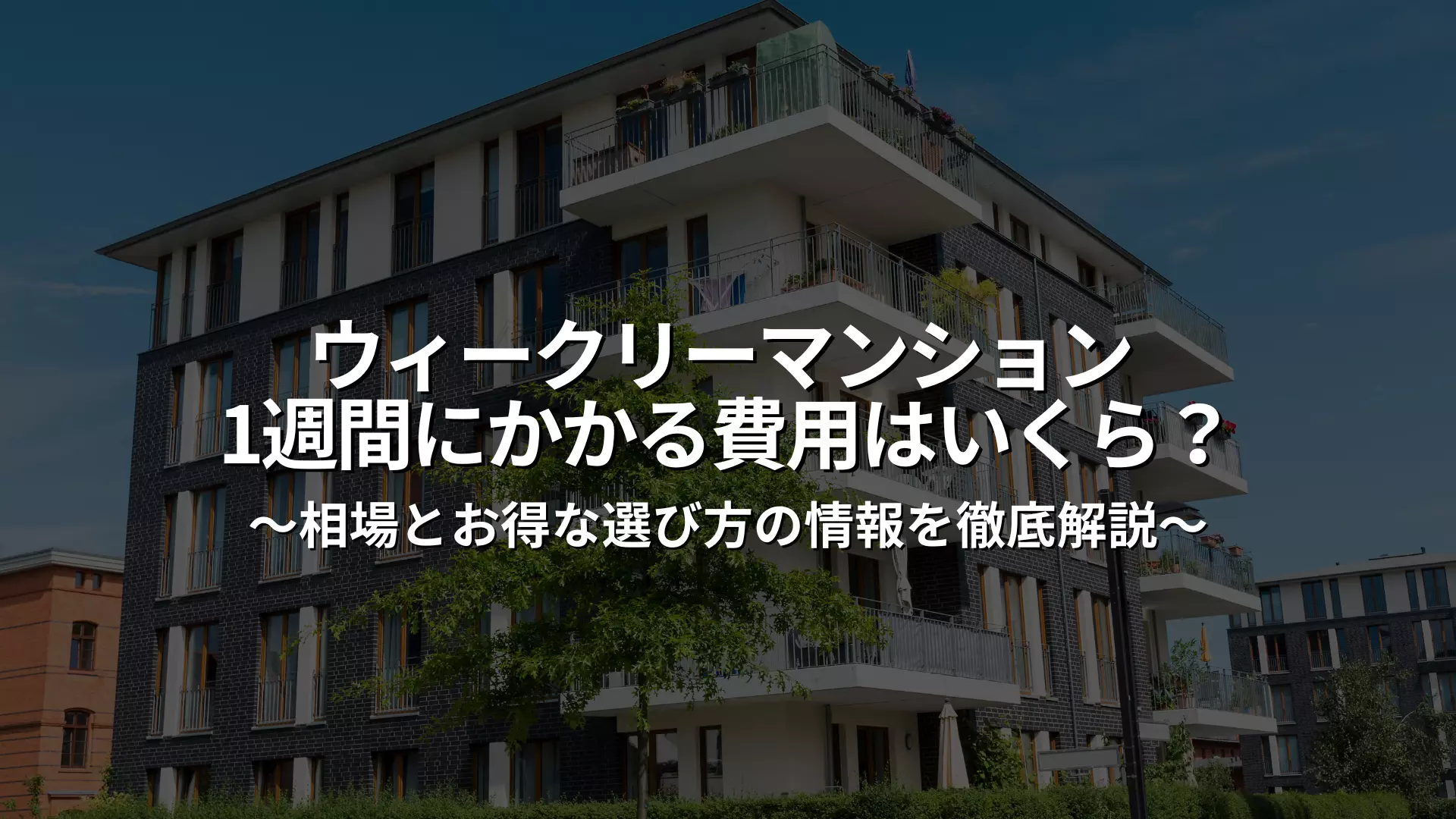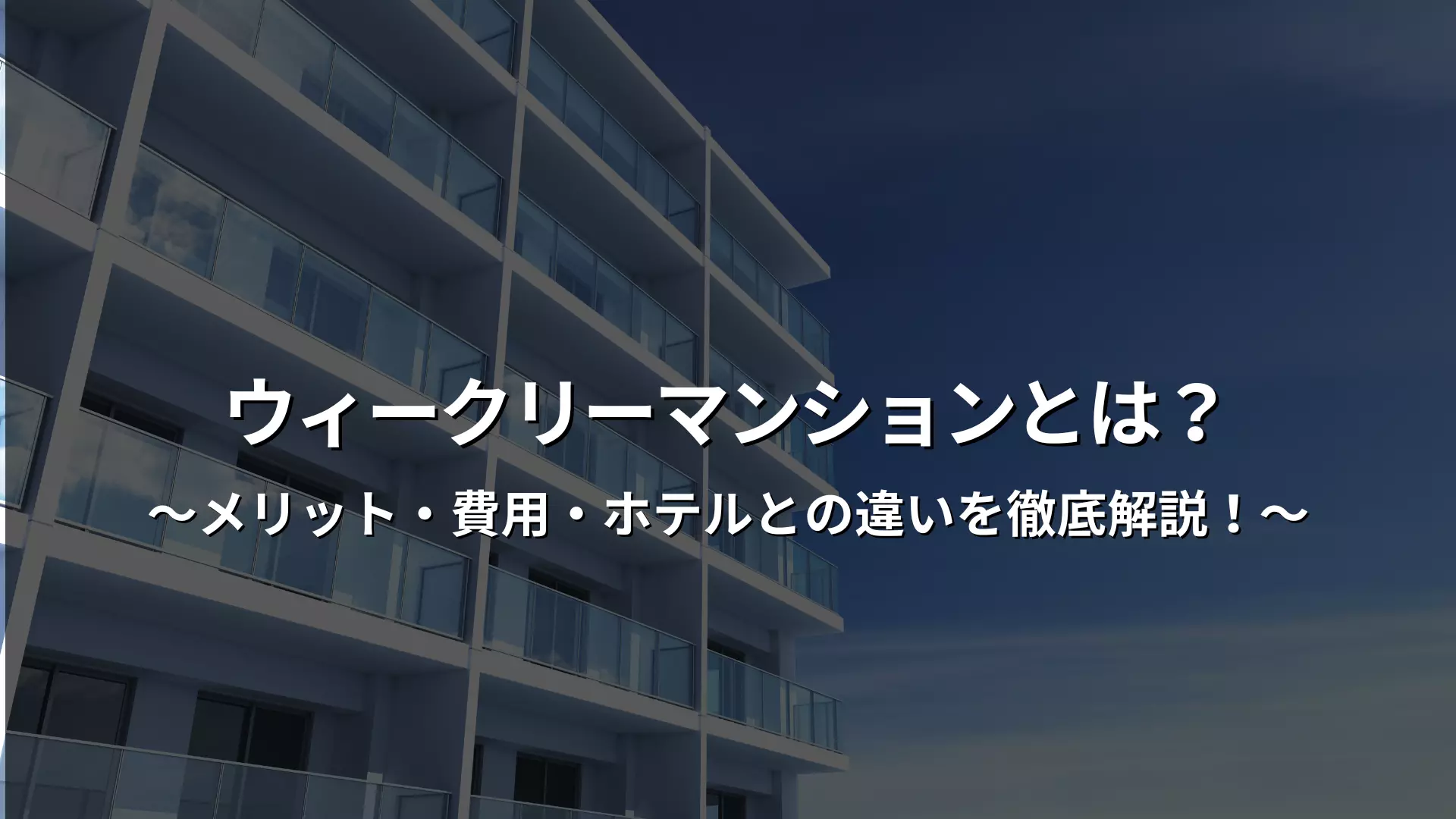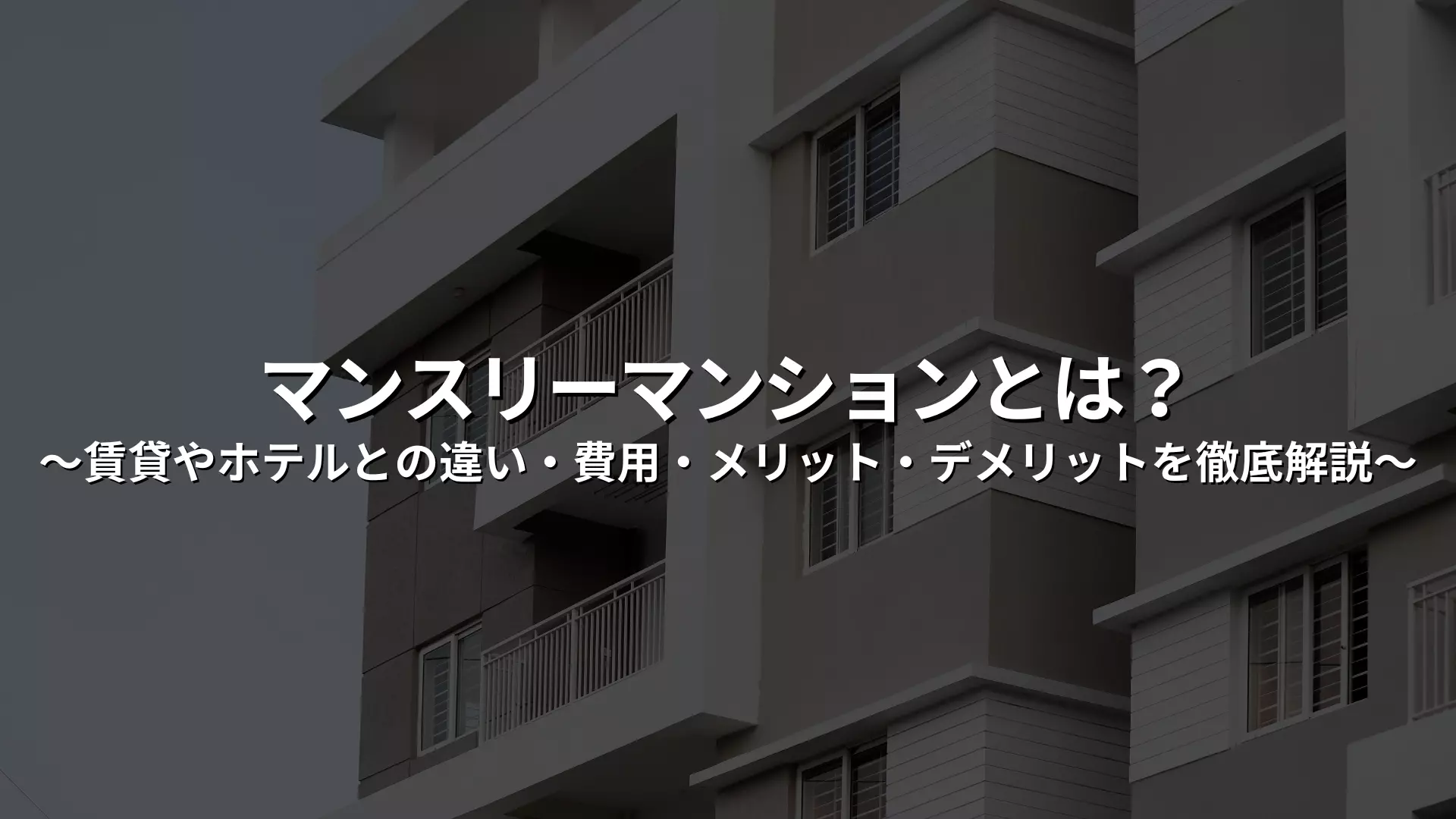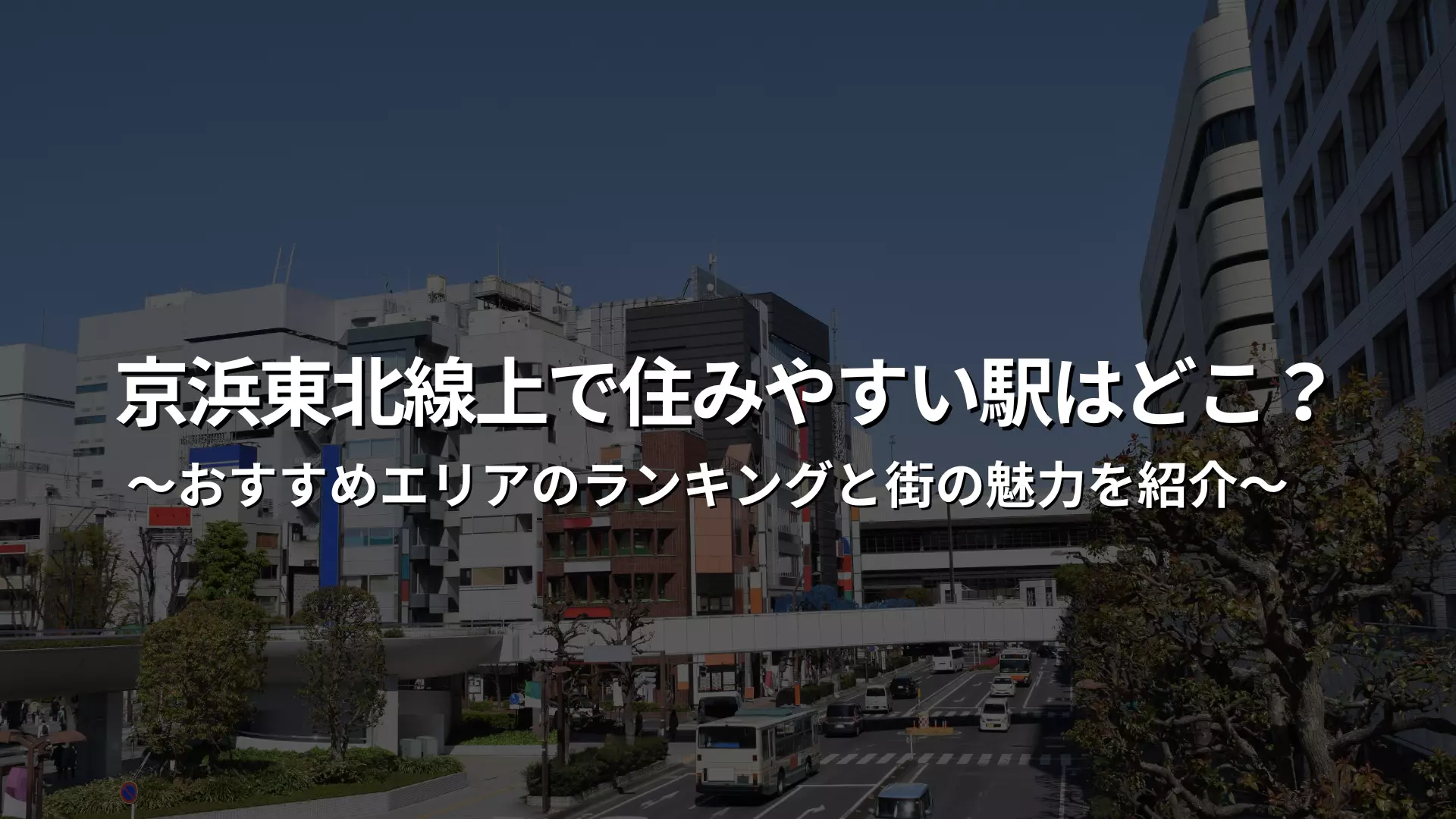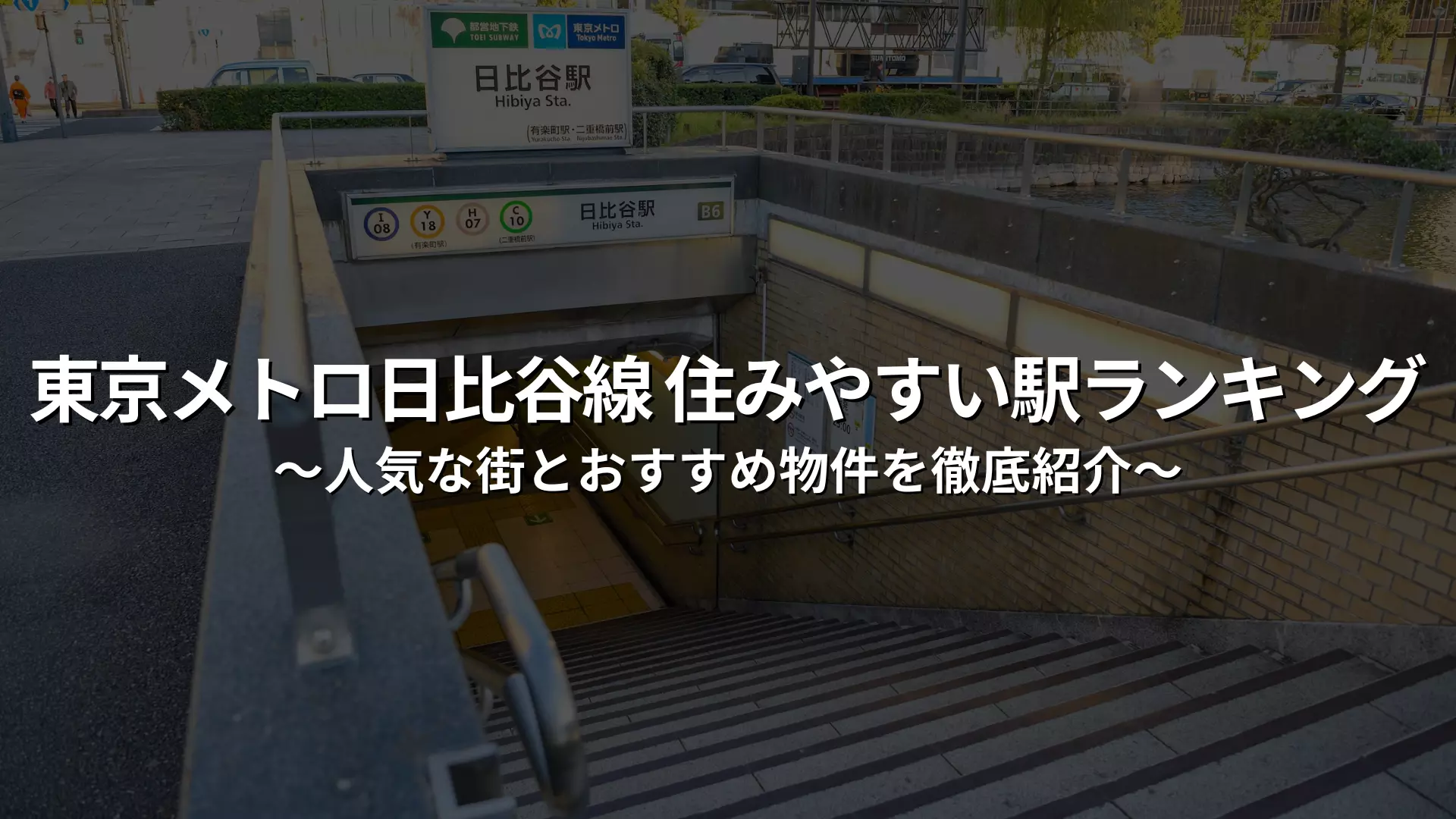What is a monthly apartment? How is it different from a regular rental property?
A monthly apartment is a short-term rental property that comes with furniture and appliances and can be leased on a monthly basis.
Unlike regular rentals, in many cases there is no need for a deposit, key money, or brokerage fee, and the procedures for moving in are simplified. Since all the necessary amenities are provided from the start, they are popular as temporary housing for business trips and before and after moving. The biggest attraction is the reduced initial costs and hassle compared to regular rentals, and they are used by a wide range of people, including people who are transferred for work, students, and foreigners.
Short-term contracts available, furnished and with appliances
The biggest features of monthly apartments are that they allow short-term contracts starting from one month, and that they come fully furnished with furniture and appliances from the start.
Beds, refrigerators, washing machines, microwaves, and other equipment are standard equipment, so you can start living right away from the first day you move in. There is no need to purchase or bring in furniture and appliances like in regular rental housing, which can significantly reduce time and costs. It is an ideal choice for business trips, single-person transfers, and temporary housing.
In some cases, no deposit, key money, or brokerage fee is required
Many monthly apartments do not require the initial costs that typically come with a rental contract, such as a security deposit, key money, or brokerage fee. This is a major advantage for those who want to keep initial costs as low as possible.
Some properties require cleaning fees and a security deposit, but the total amount is usually clearly stated in advance, making it easy to manage your budget. This makes it possible to choose a place with good cost performance, especially for those looking for a short-term stay or temporary residence.
Less moving costs and hassle with contract procedures
Compared to regular rental housing, monthly apartments are characterized by the fact that the hassle and expense involved in moving is significantly less.
Since furniture and appliances are provided, you don't need to carry large items and can move in lightly. In addition, the contract procedure can often be completed online or with a simple application form, reducing the hassle of tenant screening and document preparation.
It is attractive that it is easy to deal with sudden transfers or relocations, and allows you to start a new life smoothly.
Breakdown of initial costs for monthly apartments
The initial costs for a monthly apartment mainly consist of rent, management fees, utility fees, cleaning fees, contract fees, etc. Unlike regular rentals, in many cases no deposit or key money is required, which means the initial costs are relatively low.
Depending on the property, these fees may be listed as "all-inclusive," making it easier to plan your budget since the total amount is clear. The key to a successful contract is to check the breakdown of each item and clarify any points you are unclear about before signing.
Here we will explain each item.
rent
The rent for a monthly apartment tends to be a little more expensive than a regular rental property, but since it is fully furnished with furniture, appliances, and living facilities, it can be a good deal in terms of total cost. The fee is presented as a monthly rate and may be calculated on a pro-rata basis depending on the length of your stay.
Prices vary depending on the location, size, and age of the property, but you can find properties for around 100,000 yen in the city center and less than 50,000 yen in the suburbs. Be sure to check the fee structure and facilities before signing a contract.
Management fee/common area fee
Management fees and common area fees are used to cover the costs of cleaning the building, maintaining facilities, and electricity for shared areas.
In the case of monthly apartments, common area fees of several hundred to 1,000 yen per day are often set in addition to the rent, and must be paid over the entire contract period. Depending on the property, these may be included in the rent, so it is important to carefully check the breakdown when receiving an estimate.
Utility bills and internet charges
In monthly apartments, utility bills and internet fees are generally set at a fixed rate in advance. The advantage is that the amount does not fluctuate and it is easy to manage your budget, as you are charged a fixed rate regardless of your monthly usage.
Depending on the property, Wi-Fi may be provided free of charge, so if you are planning on traveling for business or working remotely, be sure to check the facilities and internet speeds.
Cleaning fee after moving out
The cost of cleaning the room after you move out is often charged in advance at the time of signing the contract. Unlike a deposit, this is almost always treated as a non-refundable "actual cost" and is around 5,000 to 20,000 yen. Depending on how dirty the room is, you may be charged extra, so keeping the room clean while you are using it will help prevent any trouble.
It is a good idea to check the cleaning fee amount and rules carefully before signing a contract.
Contract fees, deposits, etc.
Some monthly apartments may require a contract fee and a security deposit. The contract fee is incurred as a processing fee for the real estate company, and typically ranges from a few thousand yen to around 10,000 yen. The security deposit is a fee to cover damage to the facilities, and may be refunded if there are no problems when you move out.
However, there are also "fee-free properties" that do not require these fees at all, so it is possible to reduce initial costs by comparing conditions and making a selection.
Additional costs that may be incurred beyond the initial cost
In monthly apartments, in addition to the basic fees such as rent and utility bills, additional costs may be incurred depending on the situation.
Typical examples include "paid options," "parking fees," "pet keeping fees," "additional fees when extending the contract," and "cancellation fees."
Fees and conditions vary depending on the property, so it is important to check these costs before signing a contract.
Paid options
Monthly apartments may offer "paid options" such as bedding sets, cooking utensils, cleaning services, etc. While these can increase the convenience of your life, they also incur additional monthly or lump-sum fees.
For example, the going rate for renting a futon is around 5,000 to 10,000 yen, and regular cleaning costs several thousand yen.
By selecting the services you need, you can achieve a comfortable life while keeping costs down. When signing the contract, be sure to check whether there are any options and the fee structure.
Parking and pet fees
If you own a car or plan to live with pets, you may be required to pay additional parking fees and pet care fees.
Parking fees vary depending on the area and property, but they are roughly 10,000 to 20,000 yen per month. Properties that allow pets may require an additional cleaning fee or a deposit.
To avoid any problems, it is important to check in advance whether pets are permitted and what the rules are, and choose a property that meets your requirements.
Additional fees for extension and cancellation fees
If you extend the contract period or move out or cancel earlier than planned, additional fees and penalties may be incurred. When extending the contract period, you may be charged a renewal fee in addition to the regular rent, so you need to be careful about sudden changes to your plans.
In addition, cancellation fees are often incurred at a fixed rate after the contract is concluded, and vary depending on the number of days. When signing a contract, be sure to check the cancellation policy, whether extensions are possible, and the fee structure in advance, and try to design a flexible plan.
How and when to pay the initial fee
The initial fees for monthly apartments are generally paid in advance in a lump sum before moving in. Depending on the property and management company, some may accept payment by credit card, bank transfer, or electronic money.
In a very small number of properties, installment payments may be possible under certain conditions, but prior consultation is required. In order to avoid any problems, it is important to clearly confirm the payment method and timing before signing the contract.

Lump sum payment is the norm
Many monthly apartments require you to pay all initial fees in one lump sum before moving in. This is a rule that is in place to ensure payment certainty due to the short-term nature of monthly apartments.
The cost includes rent, management fees, utilities, cleaning fees, etc., and the total amount will be presented in an estimate when you sign the contract. Even if it is difficult to pay in one lump sum, you may be able to be flexible by consulting in advance.
Accepts credit cards, bank transfers and electronic payments
Recently, an increasing number of monthly apartment management companies are accepting credit card payments, bank transfers, and electronic payments such as PayPay.
Especially now that online reservations are becoming mainstream, card payments are popular among customers because they are quick. You can also adjust the payment burden by using cards that issue receipts or have installment payment functions. Be sure to check the official website or contact the company to see if your desired payment method is available.
Are there any properties that allow installment payments?
As a general rule, a lump sum payment is the norm, but some monthly apartments allow for installment payments.
For example, monthly installment payments may be allowed in discount plans for long-term residents or in contracts based on corporate contracts. However, the availability of installments, number of installments, and conditions vary depending on the operating company, so it is essential to check and consult in advance.
Tips for keeping initial costs of monthly apartments low
To get the best deal on a monthly apartment, it is effective to take advantage of discount campaigns and choose a cheaper plan with a long-term contract. Also, pay attention to whether there are any options or fees included in the initial fee.
By choosing a property with a discount campaign or free options, you can significantly reduce your expenses. It is important to compare multiple properties before signing a contract and find a plan that will reduce the total amount.
Take advantage of campaigns and discounted properties
Monthly Apartments regularly offers limited-time campaigns and discounted properties.
For example, perks such as "half price for the first month," "free cleaning fees," and "long-term discounts" are opportunities to significantly reduce initial costs.
On the official website, check out properties that are marked as "Campaign in progress" or "Limited time discount" to get great deals. Be sure to check the campaign details carefully before signing a contract, and don't miss out on them.
Choose a plan that offers discounts for long-term contracts
Monthly apartments can be leased on a monthly basis, but if you choose a long-term contract of three or six months or more, the monthly rent will often be cheaper.
You can significantly reduce your total costs by taking advantage of "long-term stay discounts" and "flat-rate plans." If you plan to use the property for a long period of time, such as for temporary housing, training, or business trips, we recommend choosing a long-term plan from the start.
Find free options and fee-free properties
Among monthly apartments, there are some that come with free options such as bedding rental and Wi-Fi, and some that have no contract or brokerage fees. If you choose a property with an all-inclusive price, you will likely be able to keep your initial costs down even more than the rent appears to be.
In addition, it reduces the financial burden at the time of signing the contract, making it easier to deal with sudden moves or short-term stays. It is efficient to narrow down your search by "no fees" or "free options."
Comparison of initial costs between a regular rental property and a monthly apartment
Compared to regular rental properties, monthly apartments have significantly lower initial costs and easier procedures.
- Regular rental initial costs: Deposit, key money, agency fee, advance rent, guarantor company fee, etc. are required, which often cost 4 to 6 months' rent.
- Initial costs for monthly apartments: In many cases, no deposit or key money is required, and you only need to pay rent, management fees, utility fees, and cleaning fees.
Monthly apartments are a great value option for short-term use or temporary housing.
Speed and cost of moving in
One of the attractions of monthly apartments is the speed at which you can move in and the reasonable cost.
- Regular rental: It usually takes more than 1-2 weeks for viewing, screening, submitting contract documents, and receiving the keys.
- Monthly apartments: Some properties are available for same-day occupancy, and in many cases, applications and payments can be completed online.
Monthly apartments allow you to start a new life smoothly and reasonably even if you have to move suddenly or only need temporary housing.
summary
Monthly apartments are an ideal form of housing for short stays, sudden moves, and temporary housing, and their major appeal is the low initial costs and simple contract procedures.
There are many properties that are fully furnished and come with appliances, no deposit or key money required, and are available for immediate occupancy, making them a very reasonable choice for those who value value for money. By taking advantage of campaigns, long-term contract discounts, and fee-free properties, you can get even better deals.
Compare the property conditions carefully and choose the property that suits you best.

